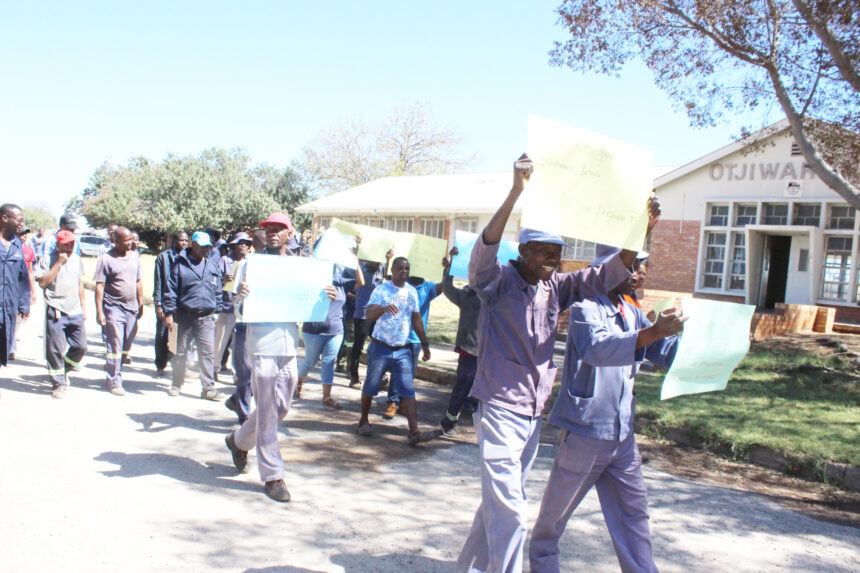The Namibia Employers Federation (NEF) has been actively advocating the deferment of the National Minimum Wage (NMW) implementation, which is currently set for 1 January 2025.
Despite extensive engagement with unions and government stakeholders, no agreement to postpone the date has been reached. Many union offices have already closed for the holiday season, leaving consultations stalled until next year, and employers in a position of uncertainty.
As its argument for the postponement of the national minimum wage, the NEF highlighted that the Wages Commission and Labour Advisory Council (LAC), had recommended that the NMW should not be implemented sooner than 12 months after its official announcement.
“While this 12-month adjustment period was proposed as minimum to give businesses time to prepare, the NEF states that certain sectors will require more time to ensure a sustainable transition. As such, the NEF has submitted a proposal for a sectoral phased-in approach to Minister of Labour, Industrialisation and Employment-Creation Utoni Nujoma, as a practical solution to balance worker welfare with economic realities,” the NEF stated.
It added that this phased approach builds upon the Wages Commission’s recommendation by extending the timeline for sectors that face greater financial strain such as agriculture, retail, security, hospitality and domestic work. Under the proposal, high-resilience sectors would adjust sooner, while vulnerable sectors would transition more gradually, achieving full compliance by 1 January 2027.
“The NEF fully supports the principle of a National Minimum Wage. However, immediate implementation without adequate adjustment time will cause irreparable harm to businesses, particularly in vulnerable sectors. The phased-in sectoral approach we propose ensures fair wages, while giving employers the time and space they need to align with the requirements sustainably. This solution aims to safeguard employment opportunities, while promoting the welfare of workers in a sustainable manner,” said Elia Shikongo, president of the NEF.
An NEF statement added that employers, especially in sectors heavily-reliant on labour, face severe risks if the NMW is implemented immediately. These, the NEF said, include large-scale retrenchments, operational cutbacks and potential closures, which would undermine the policy’s goals.
The NEF’s proposal for a phased-in implementation timeline includes an impact analysis and sector preparation (2025), which entails conducting a sector-specific assessment to identify industries most at risk, and providing targeted guidance for compliance. The proposal further calls for a gradual roll-out, with high-resilience sectors, such as financial services achieving compliance first, while moderate-resilience sectors, like retail and hospitality transition incrementally. The NEF thus calls for full implementation for vulnerable sectors by 2027. This, the NEF stated, would involve agriculture, security and domestic work, and other vulnerable sectors completing their compliance to ensure a smooth and sustainable transition. The NEF thus called on the labour ministry to provide urgent clarity on the implementation timeline, and to consider adopting the phased-in sectoral approach to avoid unintended consequences.
“Employers unable to meet the 1 January 2025 deadline are encouraged to apply for exemptions. However, delays in convening the Labour Advisory Council complicate this process further. The NEF remains committed to engaging constructively with all stakeholders to find a solution that ensures worker welfare, business sustainability and economic stability. Employers and employees alike deserve a practical, well-implemented policy that benefits all parties, without risking job losses or closures,” the NEF stated.
The NMW was approved by Cabinet earlier this year to be gradually implemented from 1 January 2025. The NMW for all Namibians, except domestic and agricultural workers, will be N$18 per hour, meaning wages of workers currently earning less than N$18 must be adjusted to at least that amount.
Meanwhile, the minimum wages for domestic and agriculture workers is to be increased gradually over a three-year period until they reach N$18 per hour by 1 January 2027.
“The minimum wages must be paid in cash or cash transfer, and may not be reduced by rations or other in-kind donations. Any increase in the NMW during the three-year period will also apply to these groups. The introduction of the NMW marks a significant milestone in our nation’s journey towards social equity and economic justice. For too long, countless Namibians have worked tirelessly, often under harsh conditions, yet they have struggled to make ends meet. They have contributed to our economy, built our communities, and shaped the fabric of our society…. all while facing the burden of inadequate pay. This is not merely a matter of economics; it is a matter of dignity, respect and fairness,” said minister Utoni Nujoma when announcing the NMW schedule.



